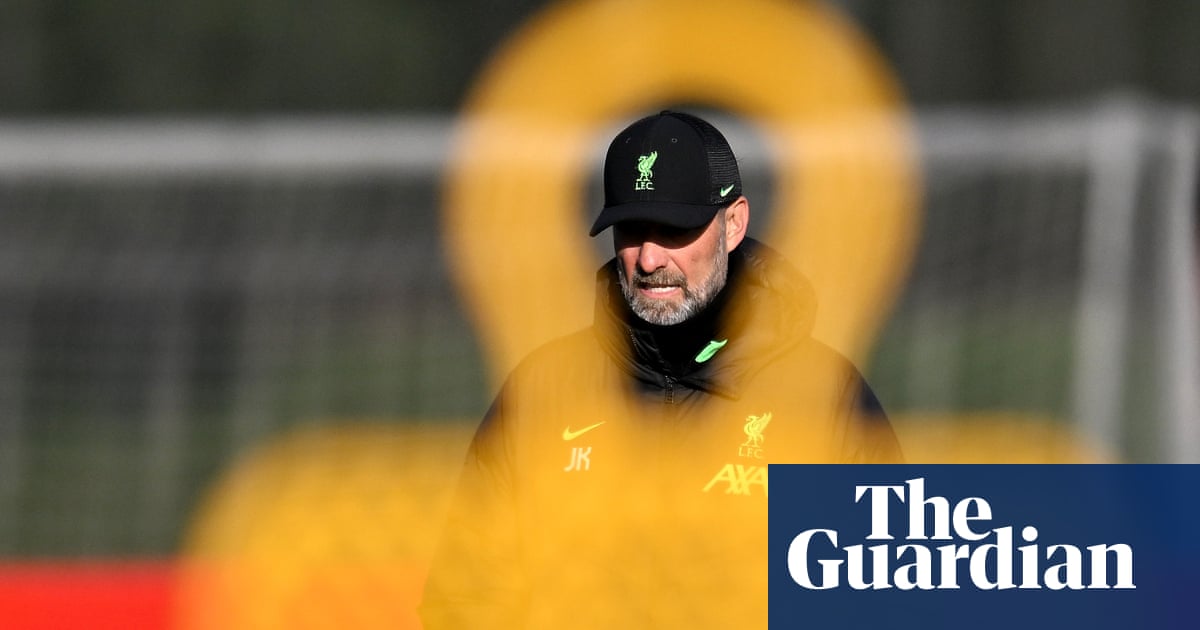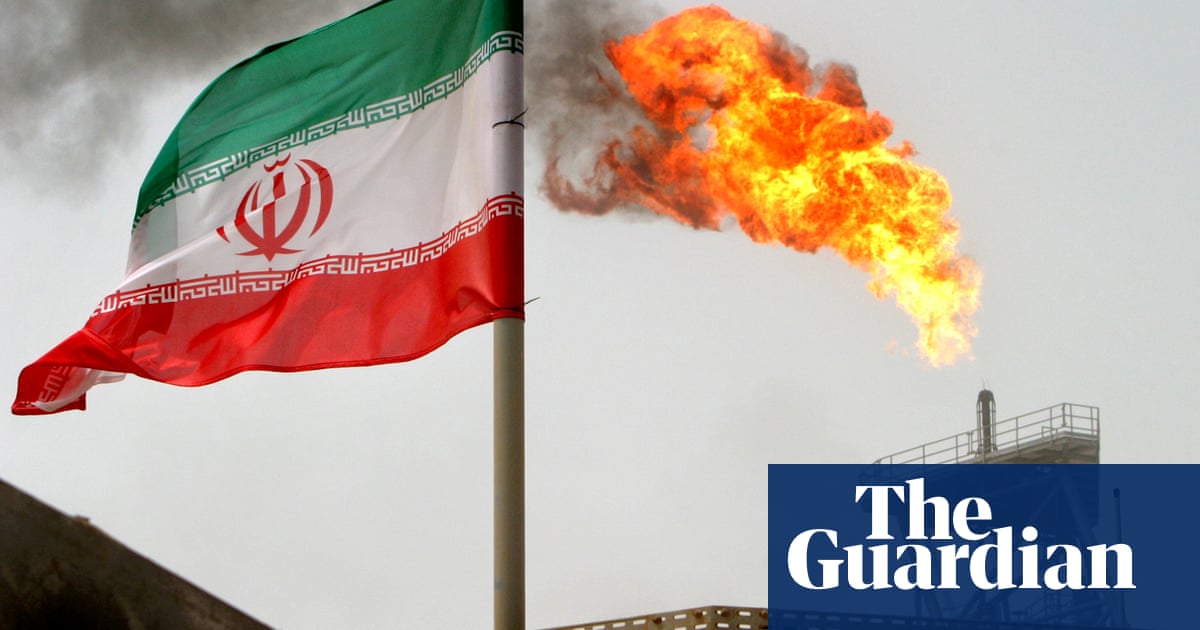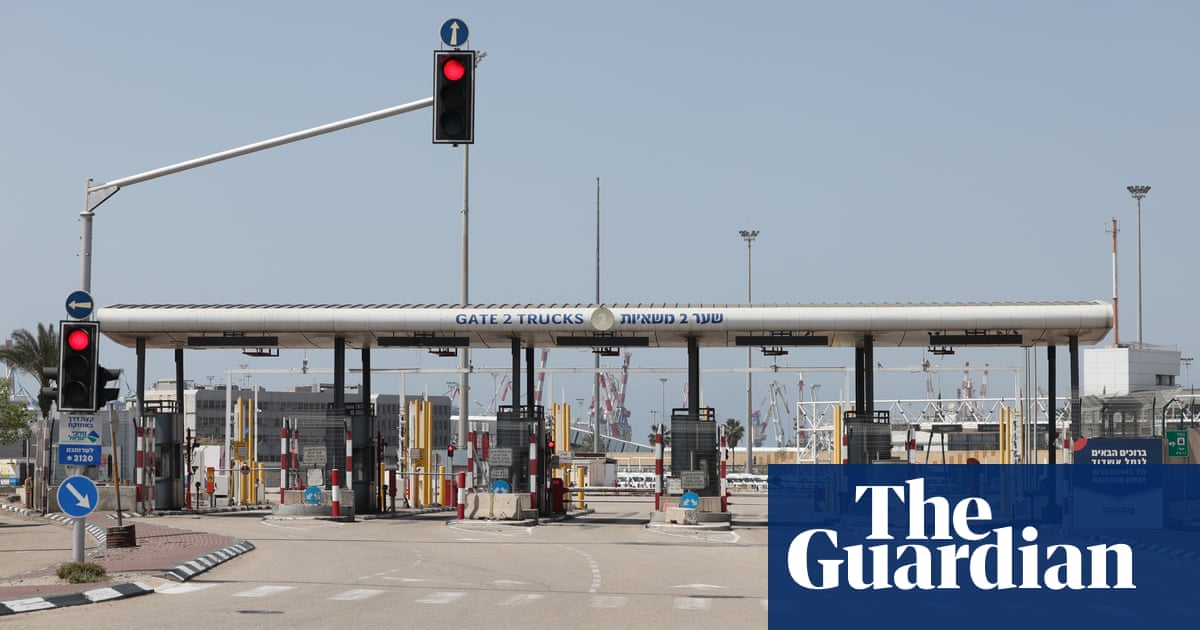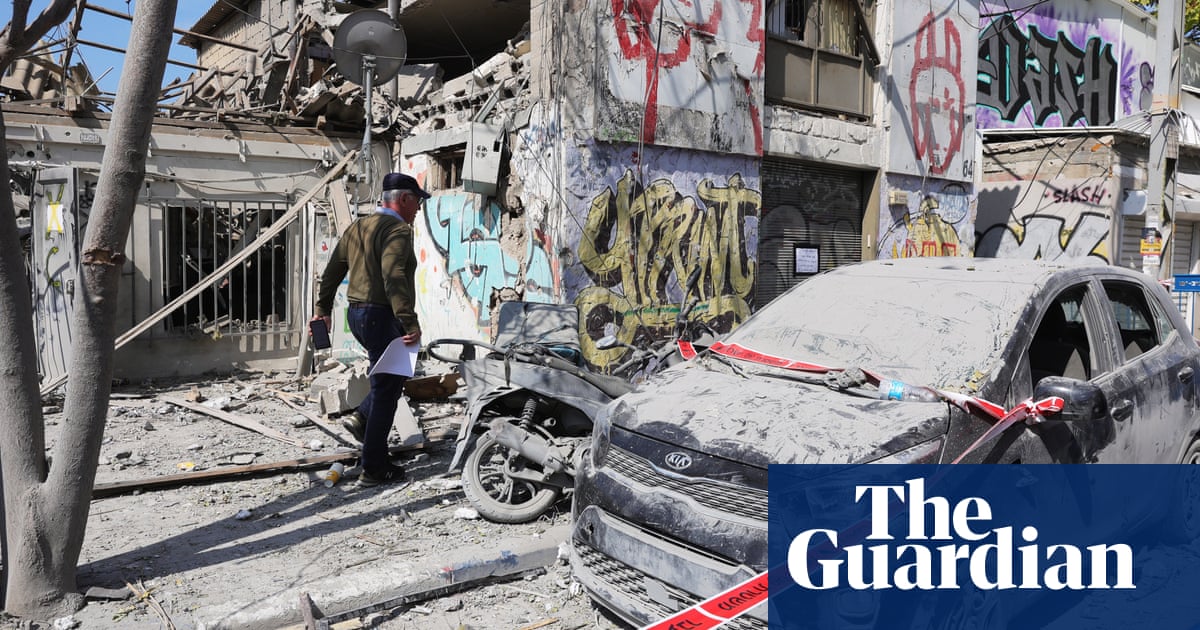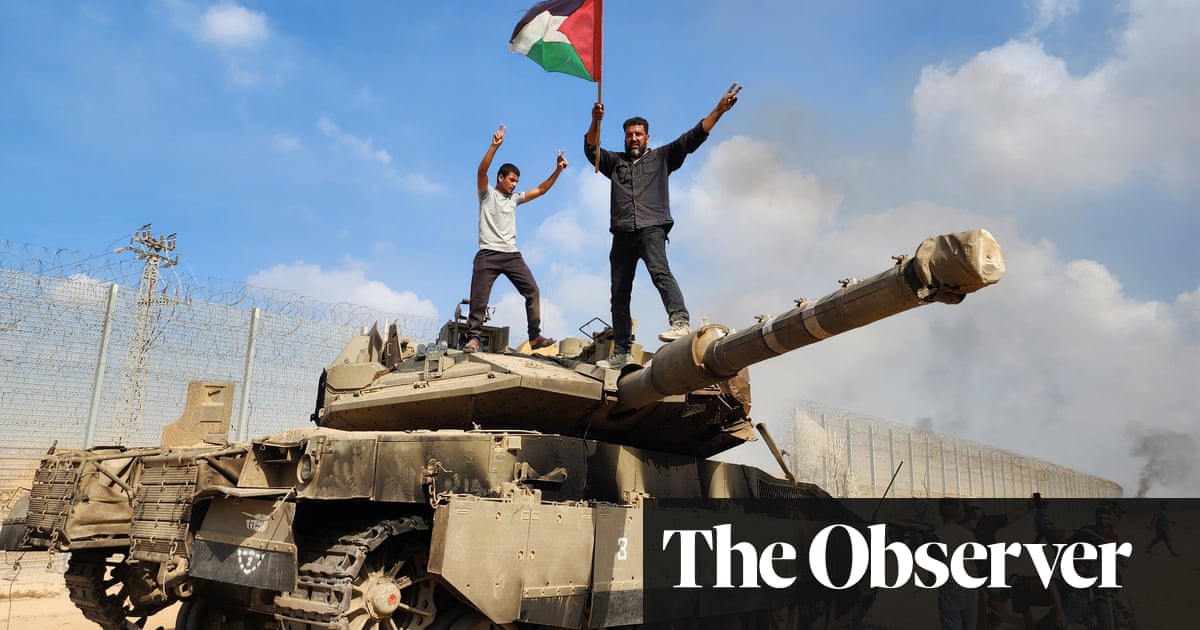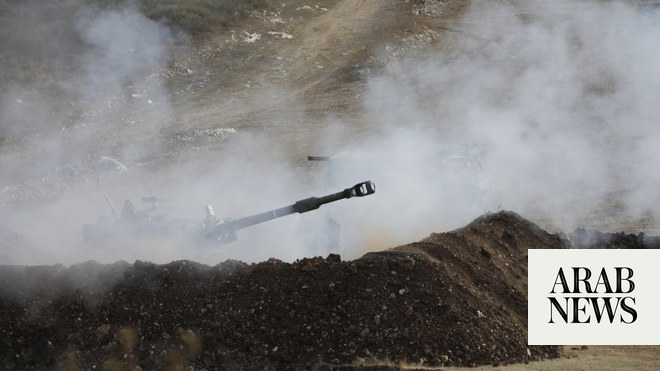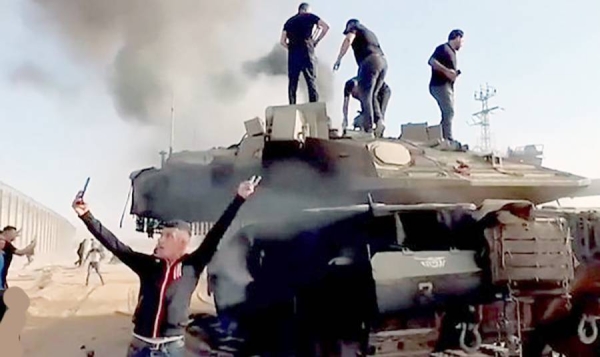
Fifty years on from the Yom Kippur War, which began with a surprise attack on Israel by Egypt and Syria, Palestinian militants have launched a major assault.
This too was unexpected, on another Jewish holiday.
Tensions had recently risen in the Gaza Strip, but the conventional wisdom was that neither Hamas, the Islamist group which governs there, nor Israel wanted an escalation.
Instead, Hamas had been planning a sophisticated, coordinated operation. Early this morning, as an intense barrage of rockets was launched with some reaching as far away as Jerusalem and Tel Aviv, Palestinian fighters entered southern Israel by sea, land and air.
They have held Israeli towns and army posts under siege for hours, killed many people and taken away an unknown number of Israeli civilians and soldiers to hold as hostages in Gaza.
The awful drama has played out live on social and mainstream media.
Thousands of Israelis who had been out for an overnight rave in fields close to Gaza rapidly found themselves under fire.
After her partner had driven to find her, Gili Yoskovich told the BBC how she had hidden from the heavily armed fighters among trees. "They were going tree by tree and shooting everywhere. From two sides and I saw people were dying all around."
"I said, "OK, I"m going to die, it"s OK, just breathe, just close your eyes", because [there] was shooting everywhere. It was very, very close to me."
Israel HaYom newspaper quoted Ella, a resident of Kibbutz Be"eri, speaking of her fears for her father who had gone to a safe room after sirens went off to warn of incoming rocket fire.
"He wrote to me that the terrorists are in the shelter, I see his picture on Telegram from inside Gaza. I still hear bursts of gunfire," she said.
Many Israelis have expressed shock that the Israeli security forces did not come more quickly to help them.
Meanwhile, footage shared on Hamas channels showed that soldiers in Israeli army posts and in a tank that had been captured or killed.
There were initial pictures of celebrations in Gaza where snatched Israeli military vehicles were driven through the streets.
"I am happy with what Hamas has done so far, taking revenge for Israeli actions at al-Aqsa," a young man in Gaza City told the BBC, referring to the recent rise in Jewish visitors to the compound in Israeli-annexed East Jerusalem during the high holidays.
The Al-Aqsa Mosque is the third holiest site in Islam and is also the holiest place for Jews, known as Temple Mount.
Still, the man who was leaving his apartment after warnings that the Israeli military was set to hit nearby, expressed fear for what would happen next.
"We"re worried, already my family lost our shop when the Shorouk Tower was hit by Israel in the war of 2021," he said. "The action Hamas has taken this time is far bigger, so there will be an even bigger Israeli response."
Palestinian hospitals have already been overwhelmed by casualties from the Israeli air strikes which have caused wide destruction.
The Gaza Strip — a tiny coastal enclave which is home to some 2.3 million Palestinians — was taken over by Hamas in 2007, a year after it won parliamentary elections. Israel and Egypt then tightened their blockade of the territory.
It remains impoverished with unemployment at around 50%.
After the serious conflict between Israel and Hamas in 2021, indirect talks mediated by Egypt, Qatar and the UN helped secure thousands of permits for Gazans to work in Israel and relax other restrictions in return for relative quiet.
Last month, when hundreds of Palestinians began to join protests by the perimeter fence in the strip in a reminder of the mass demonstrations which began five years ago, it was assumed that this was with the nod from Hamas and was meant to squeeze more concessions from Israel and aid money from Qatar.
The small rallies now seem like a red herring. Some speculate whether they were in fact a chance to survey the fence ahead of the infiltration.
With this latest operation, Hamas seems keen to burnish its credentials once again as a militant organization. Its charter remains committed to the destruction of Israel.
Speaking at the start of the offensive, the shadowy Hamas militant commander, Mohammed Deif called on Palestinians and other Arabs to join the action to "sweep away the [Israeli] occupation".
A big question now is whether Palestinians in the occupied West Bank and East Jerusalem or elsewhere in the region will heed his call.
Israel undoubtedly sees the potential for a war that could open up on multiple fronts.
A worst-case scenario is that it could draw in the powerful Lebanese militant group, Hezbollah.
Meanwhile, the Israeli military has ordered a massive reinforcement of troops. As well as its intense air raids on Gaza, it has indicated that it is planning a ground operation there.
The capture of Israeli soldiers and civilians, who Palestinian militants will hope to use as human shields or bargaining chips, are a serious complication.
"We are currently busy regaining control of the area, striking broadly and especially taking care of the area around the Gaza Strip," said the IDF spokesperson, Rear Adm. Daniel Hagari. "We will do a very sharp and thorough review."
While a full review may be some way off, there is no doubt that Israel"s intelligence and security establishment will be asking itself how it did not see this action coming and how it did not manage to prevent its huge consequences. — BBC




